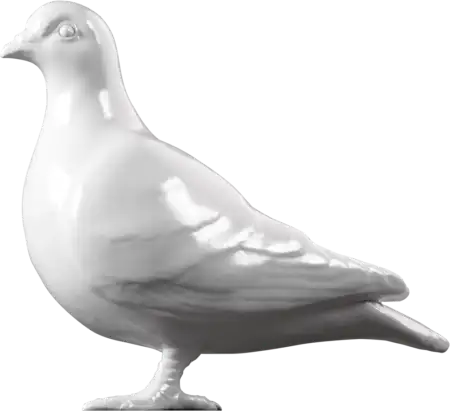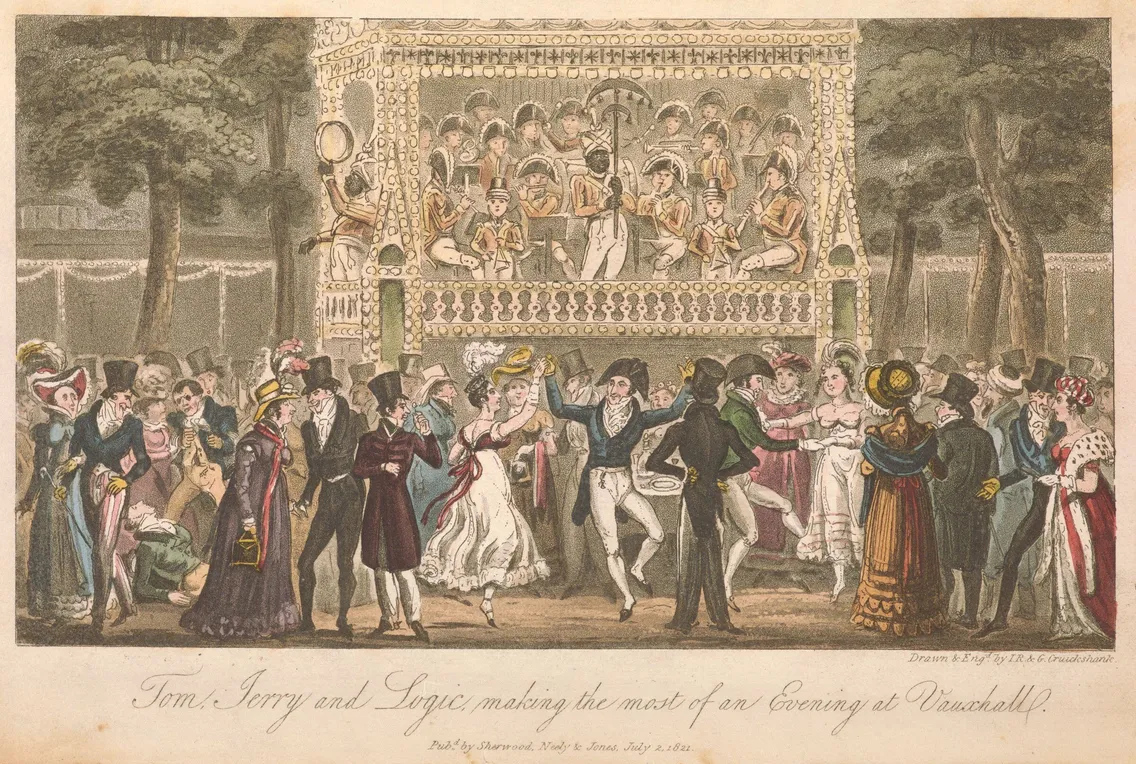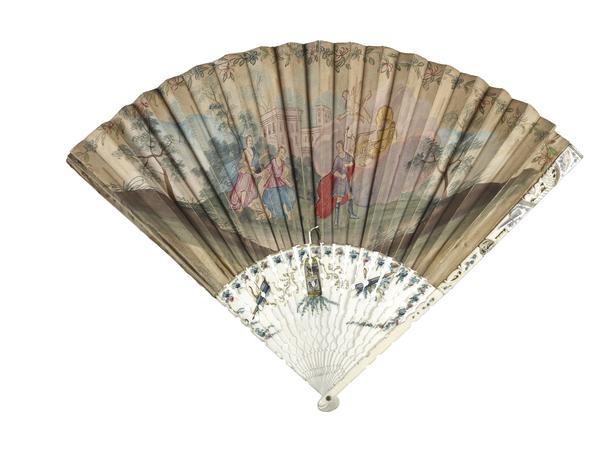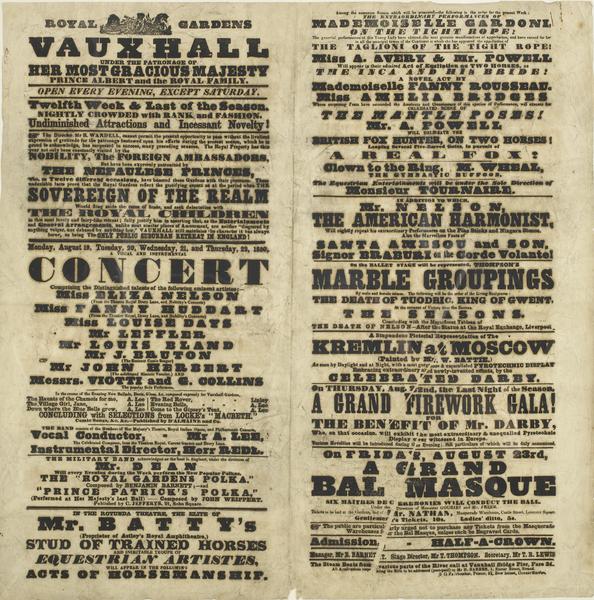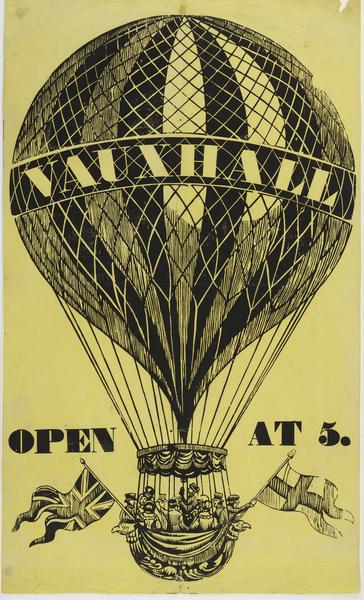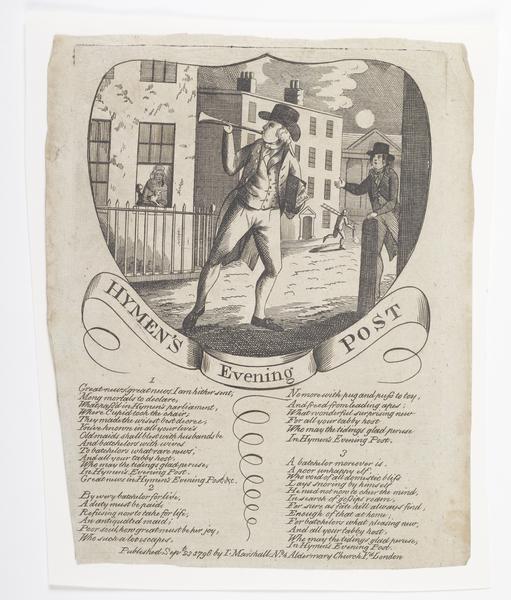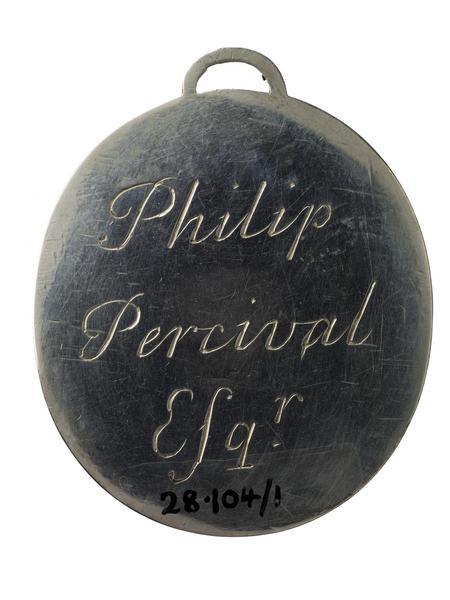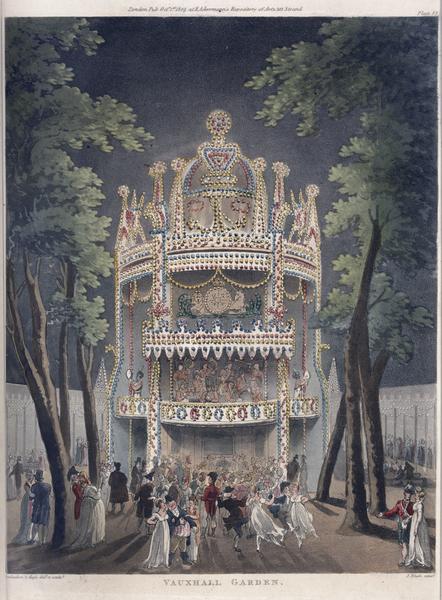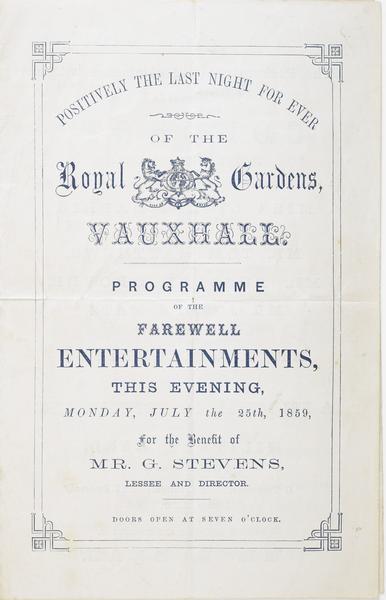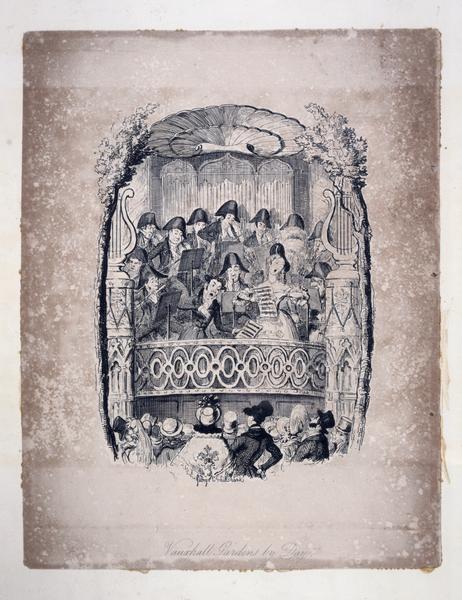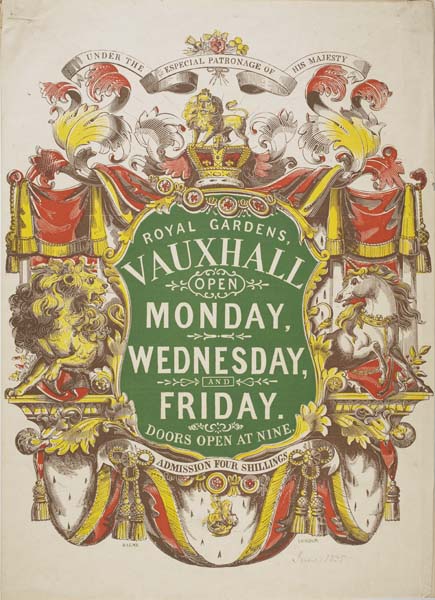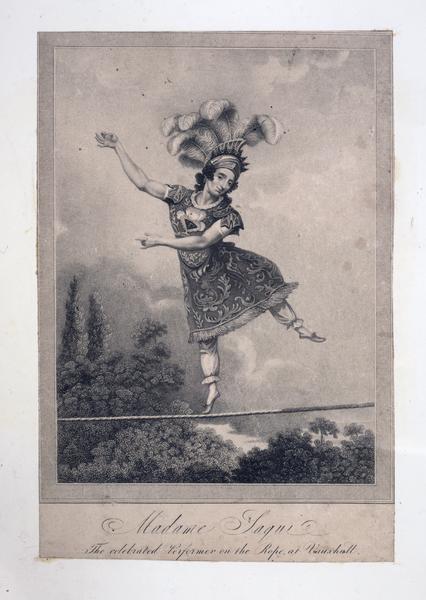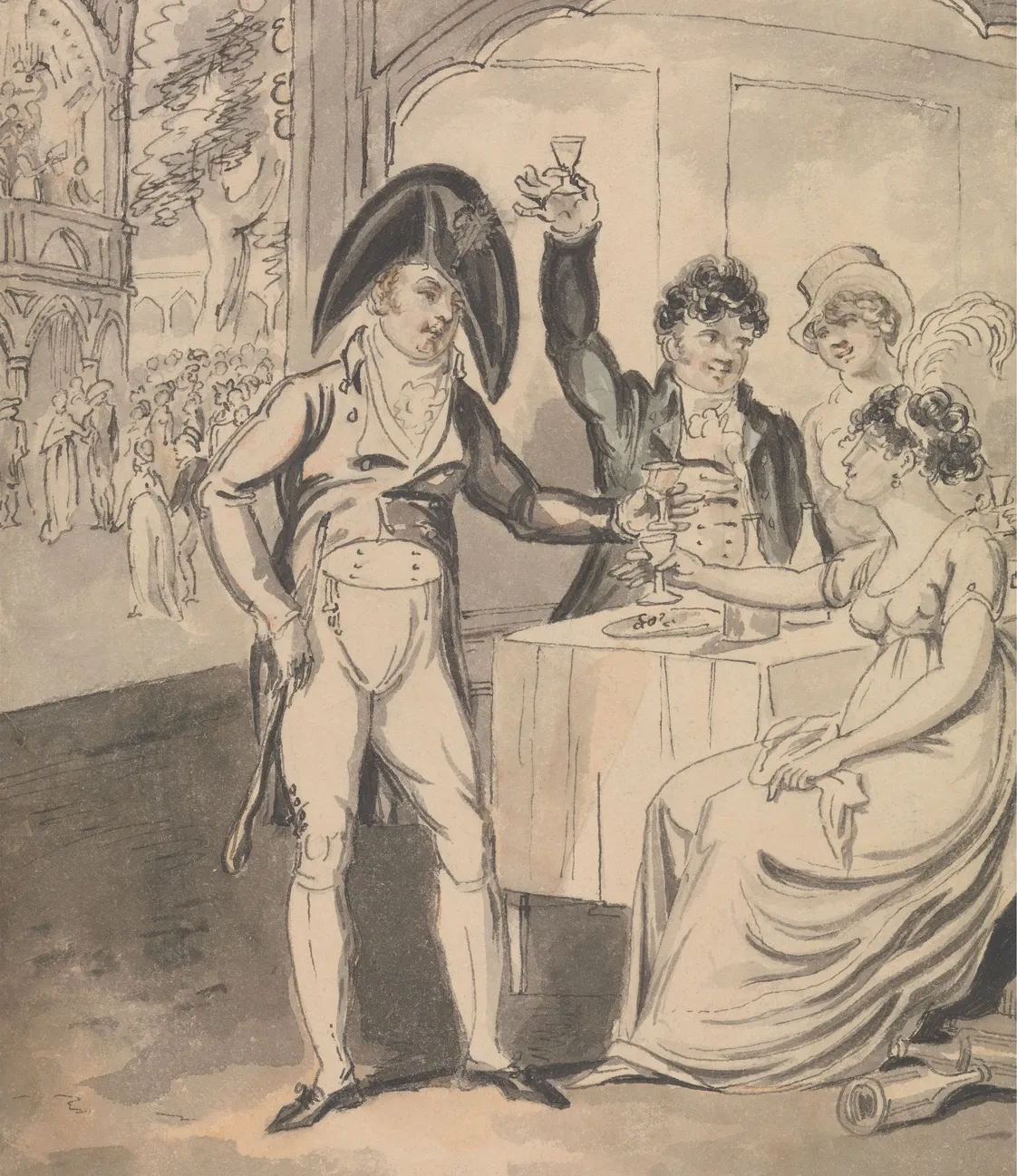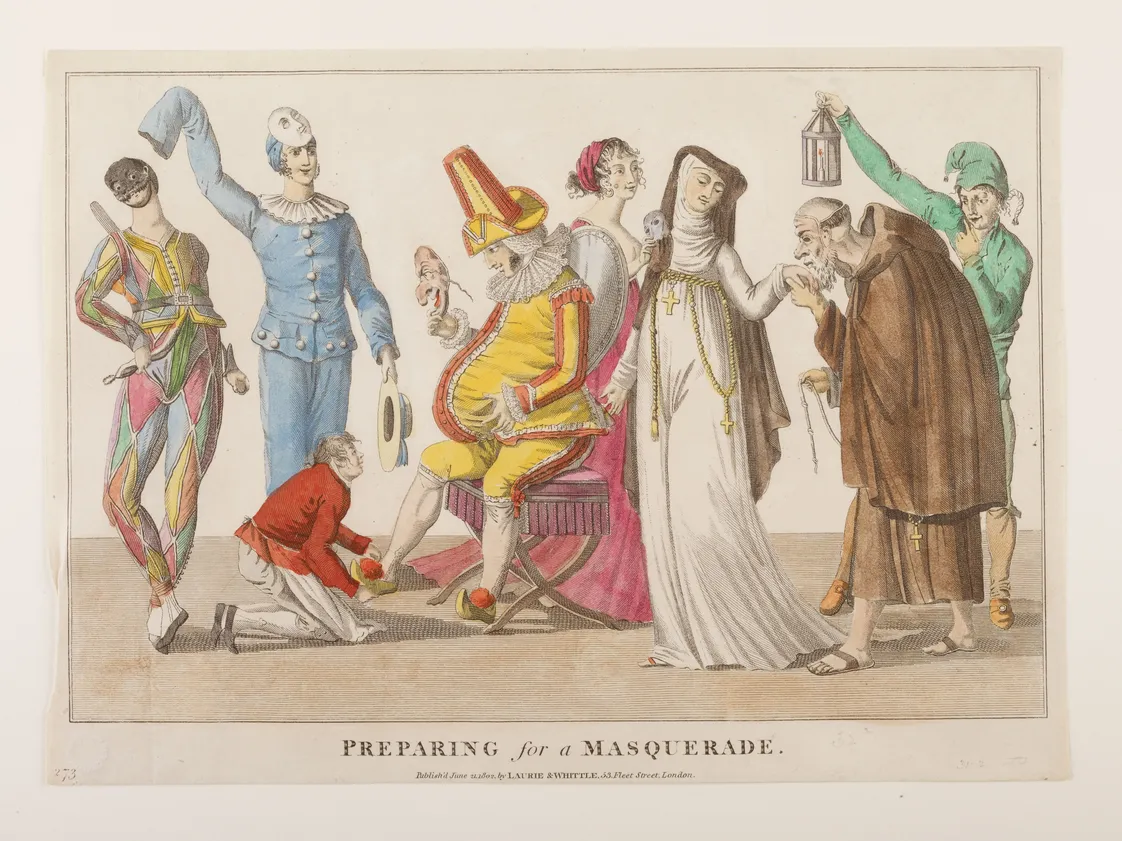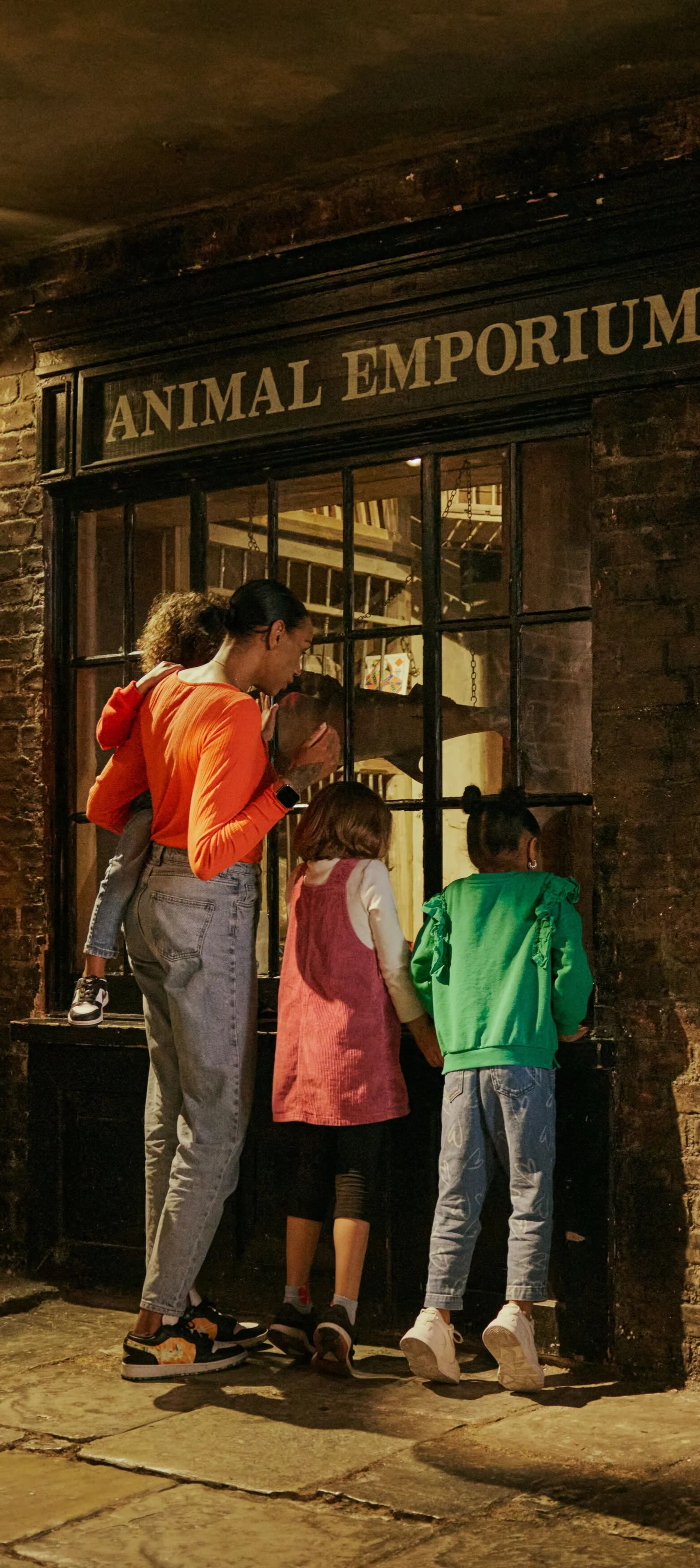A big night out at Vauxhall Pleasure Gardens
Whether you were a keen dancer, a fashionista, a social butterfly or a hedonist, Vauxhall Pleasure Gardens offered a world of possibilities to pleasure-seeking Londoners.
Lambeth
1729–1859
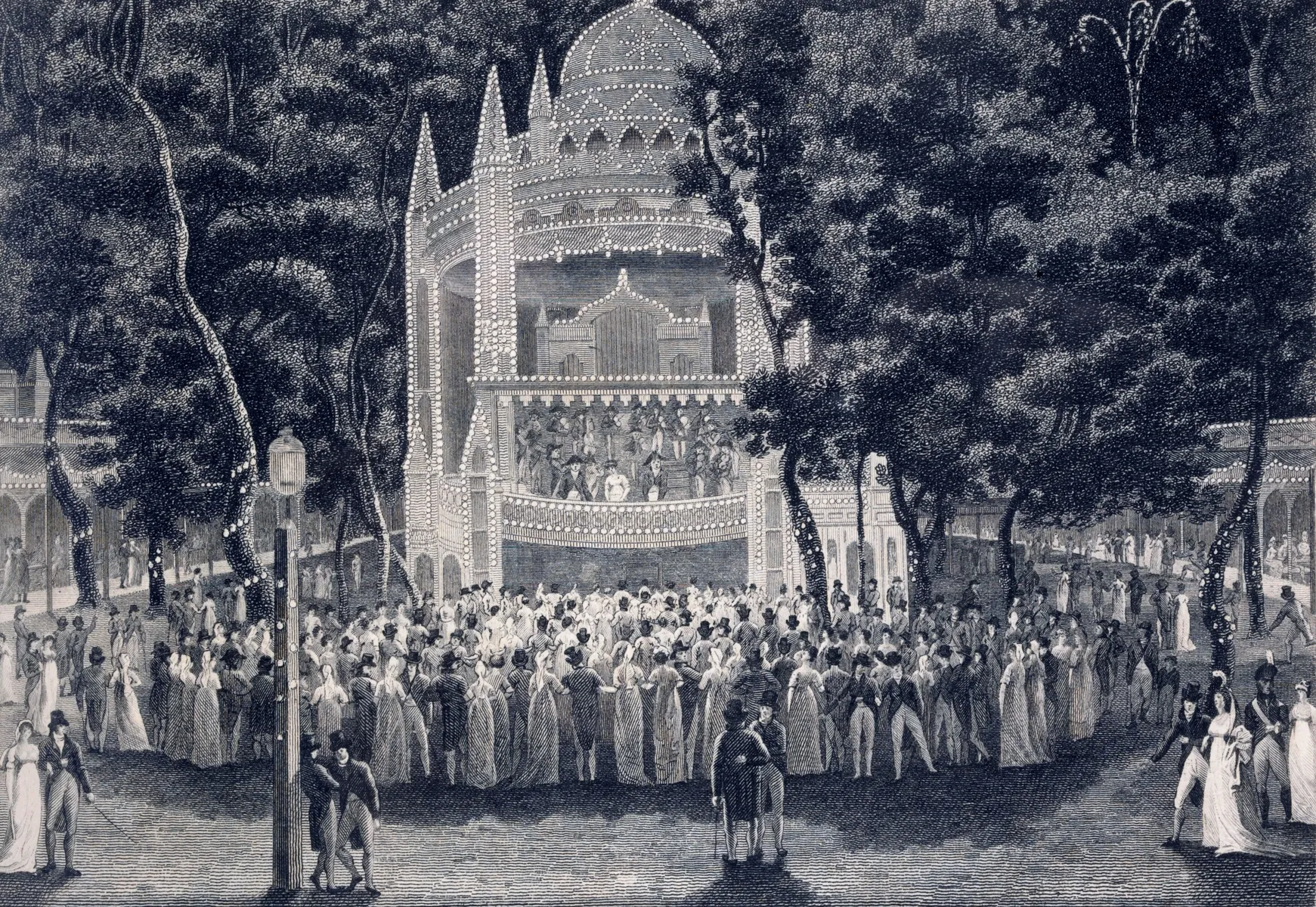
Vauxhall Pleasure Gardens on a gala night.
A spectacle like no other
From 1729 to 1859, one of London’s most popular nights out took place on the south side of the River Thames.
Vauxhall Pleasure Gardens in Lambeth was an upscale entertainment venue that stayed open late in the summer evenings. Part public garden, part restaurant and part concert venue – with elements of a holiday resort and a brothel – no modern equivalent really exists.
Pleasure gardens were places where Londoners from many different backgrounds gathered – including royals and celebrities. So dress to impress and join one of the thousand or so revellers on this famous London night out.

The Grand Walk at Vauxhall Gardens
Take a walk around the gardens
Enjoy the sunset and stroll through Vauxhall’s many gardens, such as the tree-lined Grand Walk seen in this print. At night, bolder visitors moved to the Dark Walk to take part in shady and sleazy activities.
Before the rise of pleasure gardens, promenading was an activity only the aristocracy could enjoy.
Music and masquerades
A night out at Vauxhall was all about the music. Orchestras and singers performed outdoors in the piazzas or in the dedicated Music Room. Even pieces by renowned composer George Frideric Handel were performed at the venue in the 1730s and 1740s.
Masquerades were particularly popular in the 1700s. These lavish balls allowed London’s rich, famous and infamous to conceal their identity with masks and opulent costumes. You’d see heroes, goddesses and animals. Aristocrats dressed as chimney sweeps. Men dressed as women. And women dressed as men.
Mix with the rich and famous
Pleasure gardens offered the opportunity to mingle with London’s fashionable high flyers.
In this detailed scene by Thomas Rowlandson below, writer Samuel Johnson dines in a supper box. The Duchess of Devonshire and Lady Duncannon link arms. And to the right, the Prince of Wales whispers to actress Mary Robinson. Her husband with the crutch looks on.
“Dining out for pleasure... would have been a novel concept in the 1700s”
Refuel with some food
And if all that walking, dancing and socialising made you hungry? You could order meat, bread, wine and sweet treats to enjoy in one of Vauxhall’s open-air supper boxes. Dining out for pleasure, rather than necessity, would have been a novel concept in the 1700s.
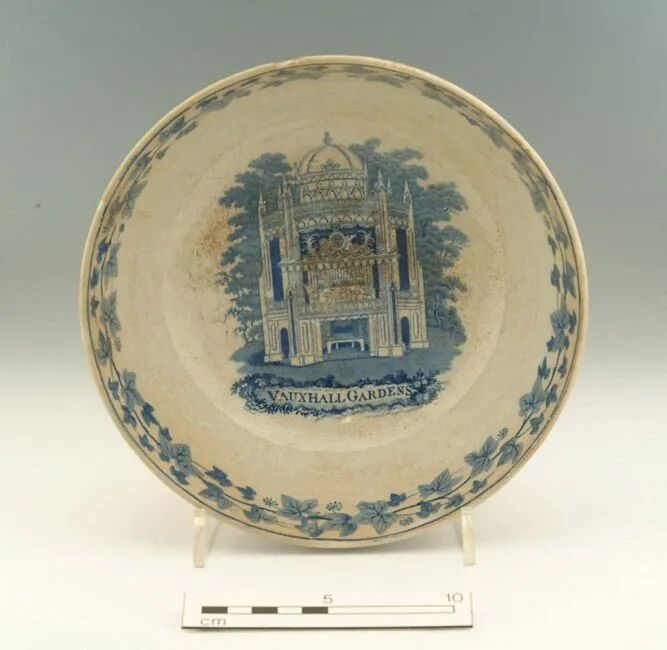
Eating at Vauxhall Pleasure Gardens wasn't cheap.
But Vauxhall served stingy portions of food at high prices. A slice of bread cost one pence in 1826 – the usual price of a small loaf. And if you wanted butter? That’d be an extra two pence, please.
And know your limits
Into the 19th century, Vauxhall became better known for debauchery, danger and drunkenness. This doodle in the Garden’s alcohol account book from 1838 shows two young men who’ve overindulged in the booze. They’re looking very hungover. So watch what you’re drinking.

A doodled observation of intoxicated pleasure garden-goers.
Enjoy the exciting entertainment on offer
Public balloon rides became popular in the 1830s and Vauxhall was one of London’s primary ascent sites. You could hitch a ride in the famous Royal Vauxhall balloon, piloted by Captain W. H. Adams Junior. In 1836, it carried the aeronaut Charles Green a record 772km to Wilburg, Germany.
Firework displays were often the final act rounding off the evening’s entertainment. They were introduced from 1798 to satisfy audiences' appetites for bigger and bolder spectacles. But even pyrotechnics couldn’t stop Vauxhall’s commercial decline. The venue closed in 1859, 14 years after this print was made.
